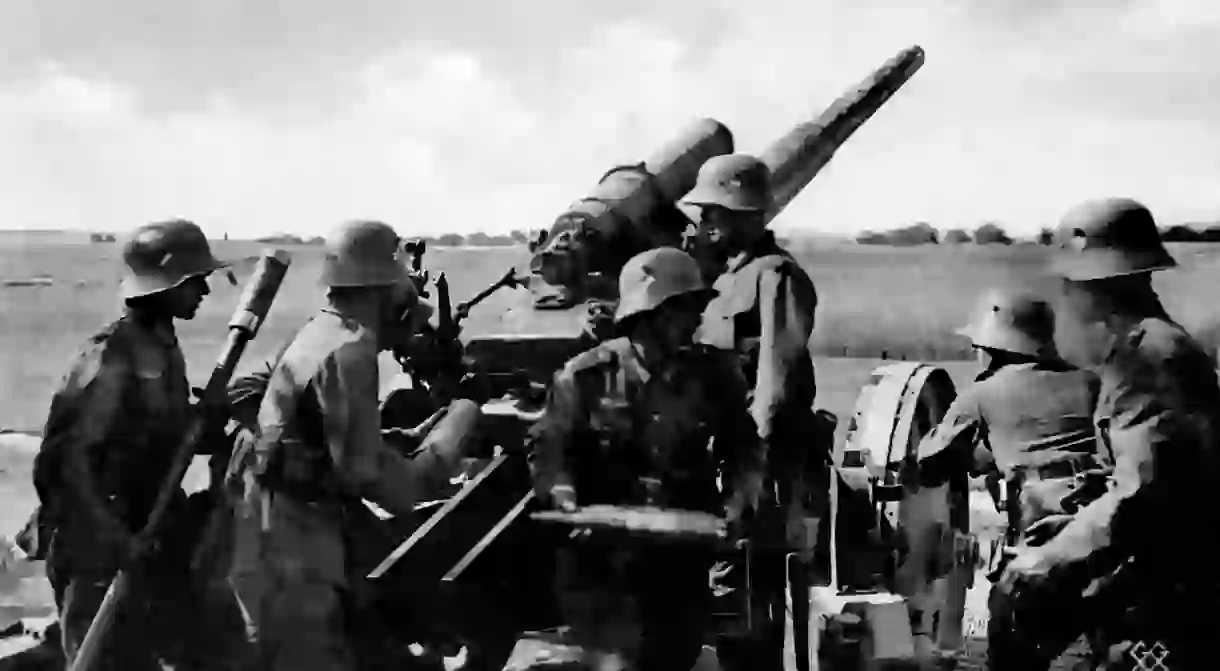VE Day: The Best Books on WWII

On the 75th anniversary of VE (Victory in Europe) Day, read up on the atrocities of war and the prevalence of hope during Europe’s darkest days with Culture Trip’s selection of the best books on World War II.
‘The Diary of a Young Girl’ by Anne Frank (1947)
The diary of teenage Anne Frank, written from a secret annexe that she shared with her family during Nazi Germany’s invasion of the Netherlands, is globally recognised as one of the definitive stories of World War II. Written between the ages of 13 and 15, Anne’s moving and introspective diary entries provide a deeply personal account of growing up in hiding and against the horrors of the Holocaust.

‘Life and Fate’ by Vasily Grossman (1960)
Though written in the 1950s and submitted for publication in 1960, Life and Fate wasn’t published in the West until 1980 – and not until 1988 in Russia. The antitotalitarian messaging in Grossman’s epic war novel led to the original manuscripts being seized by the KGB in 1961, and Grossman was told his work wouldn’t be published for another 200 years. Thankfully, it was, and the result is a gripping tome of war comparable to Tolstoy’s War and Peace. Following a set of characters as they endure the brutalities of war during and in the immediate aftermath of the Battle of Stalingrad, Life and Fate is based on Grossman’s own experiences as a wartime journalist.

‘Catch-22’ by Joseph Heller (1961)
A study of war and its absurdities, Joseph Heller’s Catch-22 is a hugely influential novel set during WWII, focussing on a fictional US Army Air Squadron based on the Tuscan island of Pianosa. The novel’s anti-hero, Captain John Yossarian, makes a series of desperate attempts to escape his duties, but he is faced with illogical and often paradoxical military rules that render his efforts futile. It’s thanks to Heller’s seminal novel that we use the phrase ‘catch-22’ in reference to paradoxical dilemmas today.

‘All the Light We Cannot See’ by Anthony Doerr (2014)
Anthony Doerr’s absorbing novel focusses on the parallel tales of two children: a blind French girl and a bright, orphaned boy in Nazi Germany. As the characters grow up, we are able to appreciate the beauty of life and the world from a child’s perspective; the young characters’ enduring curiosity and optimism against the atrocities of war is the hopeful thread that carries us through to the novel’s end.

‘The Book of Aron’ by Jim Shepard (2015)
Aron Różycki, a young, troubled boy living in a ramshackle apartment with his family in Warsaw, narrates this harrowing story from American novelist Jim Shepard. When Germany invades Poland, Aron’s neighbourhood becomes a ghetto, and eventually, he finds himself orphaned. Shepard’s deep dive into the history of the Holocaust comes to the surface in details and characters Aron encounters as he comes of age and fights to survive in Nazi-occupied Warsaw. Aron’s mentor and orphanage owner Janusz Korczak, for example, was a real Polish educator and children’s author.














